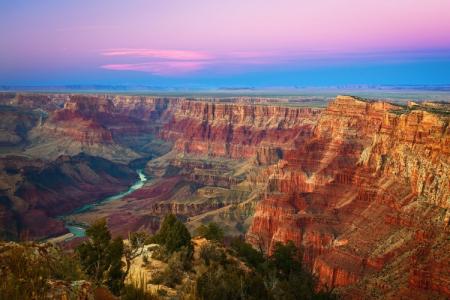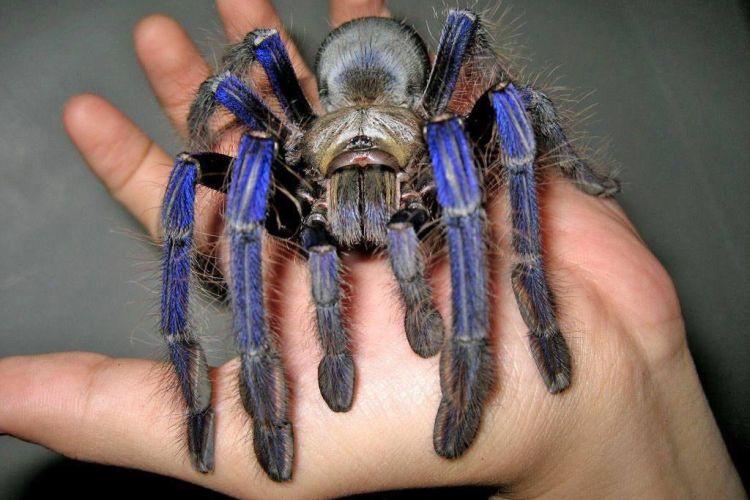
Giant spiders are heroes of horror films and nightmares. Poisonous individuals are able to kill a large animal or even a person with their bite. But in fact, most of them are completely harmless, and only look intimidating. We have collected the top 10 largest spiders in the world and share our findings!
10. The Nephil Spinner
Body size: up to 4 cm.
Paw span: up to 12 cm.
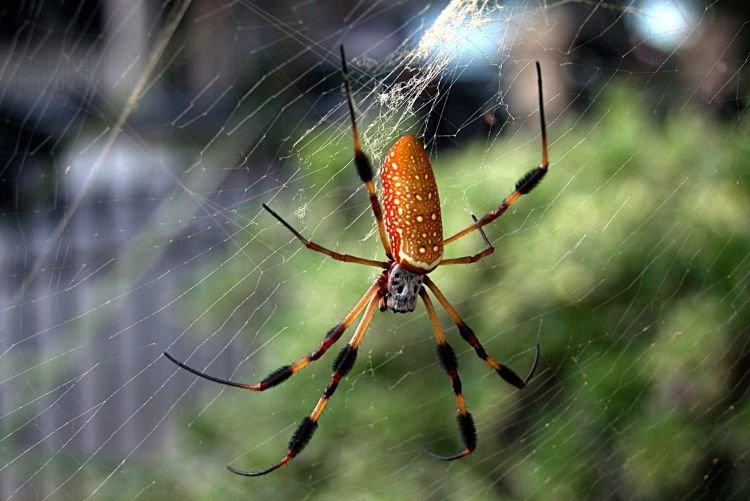
It is a tree spider that weaves the largest web in the world, and also the largest spider that weaves it in general. In fact, it is the nephils, and not the tarantulas, that pose a real threat to birds. The neurotoxins in the poison are not fatal to humans, and the effects of the bite disappear in a couple of days.
9. Tegenaria wall
Body size: up to 4 cm.
Paw span: up to 14 cm.
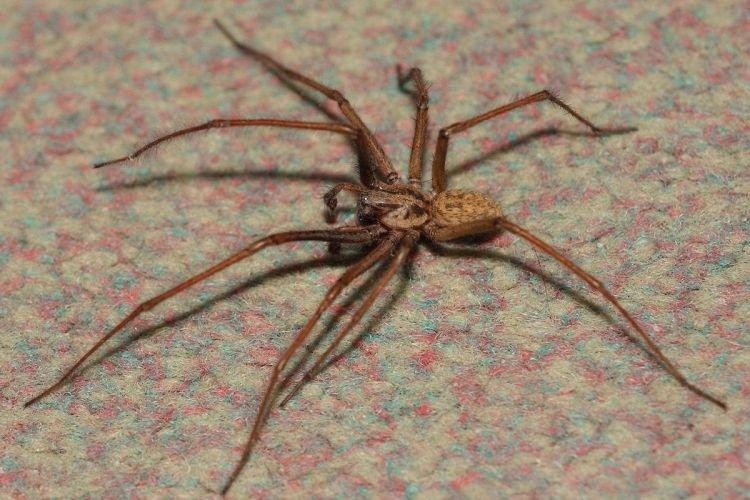
This is an ordinary house spider that grows to an impressive size. There are hundreds of species of tegenaria in nature, but they are completely harmless to humans and feed only on insects.
8. Spider-hunter
Body size: up to 5 cm.
Paw span: up to 17 cm.
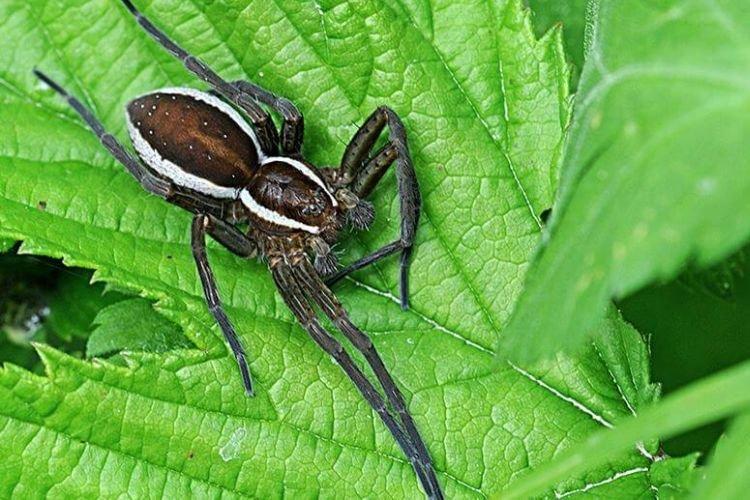
This is a whole family of large and predominantly Australian spiders, which we often see in pictures of the horrors of this continent. The paws of individual individuals can reach up to 30 cm. Although the hunter spiders are scary, jumpy, sudden and hunt in the open, they are quite harmless for humans.
7. Heteropod Maxim
Body size: up to 5 cm.
Paw span: up to 25 cm.
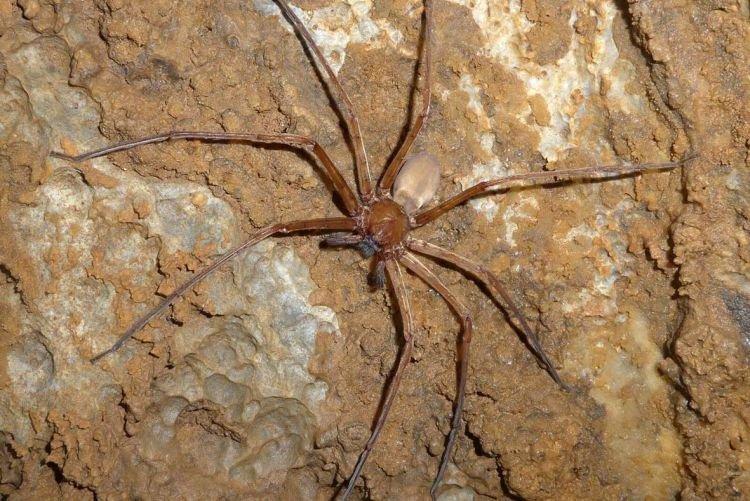
This giant crab spider, originally from Laos, may not have the most impressive body size, but its paw span is truly record-breaking. The cave brown spider is rarely seen by humans and looks much more frightening than it actually is.
6. Arabian Cerbalus
Body size: up to 6 cm.
Paw span: up to 20 cm.
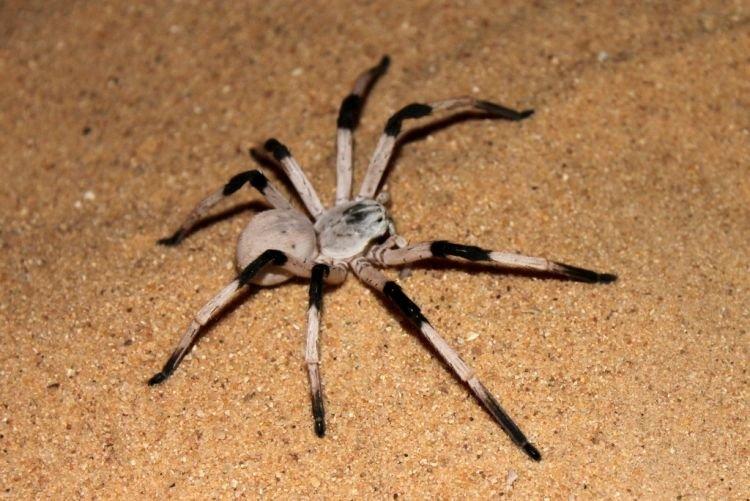
This spider lives in Saudi Arabia, Israel and Jordan. It has a characteristic yellowish coloration that allows it to camouflage itself in the sand. Cerbalus leads a secretive and nocturnal lifestyle, so it was discovered quite recently - in 2003.
5. Brazilian wandering spider
Body size: up to 7 cm.
Paw span: up to 17 cm.
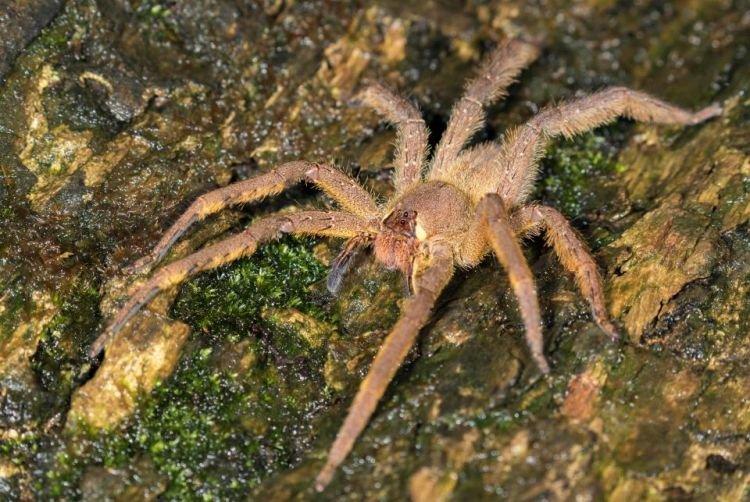
These spiders are native to South America, very poisonous and dangerous to humans. They can run and jump briskly, thanks to which they successfully hunt birds and lizards. Wandering spiders love to hide in things, boxes, shoes or hats.
4. Camel spider
Body size: up to 7 cm.
Paw span: up to 22 cm.
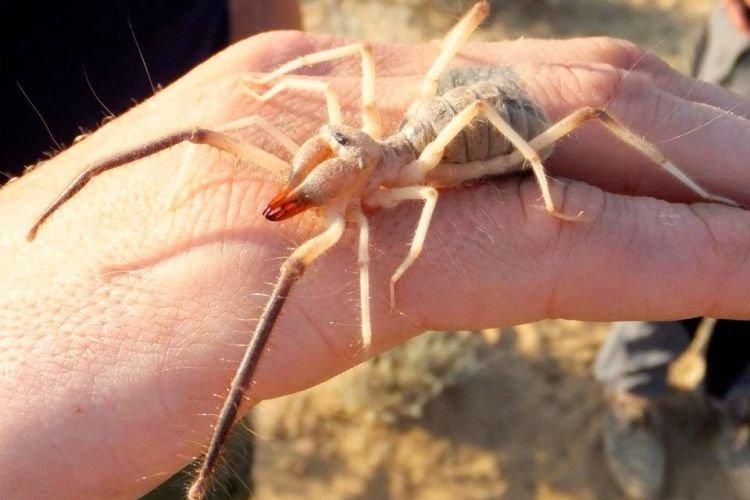
As soon as they do not call solpug - both solar spiders and wind scorpions. But still, these are omnivorous arachnids native to the desert regions. They have very powerful cutting jaws and jumping legs, and the structure of the eyes really resembles a scorpion. The bite of a solpuga is not particularly dangerous for humans, but it can cause inflammation.
3. Purple tarantula
Body size: up to 9 cm.
Paw span: up to 23 cm.
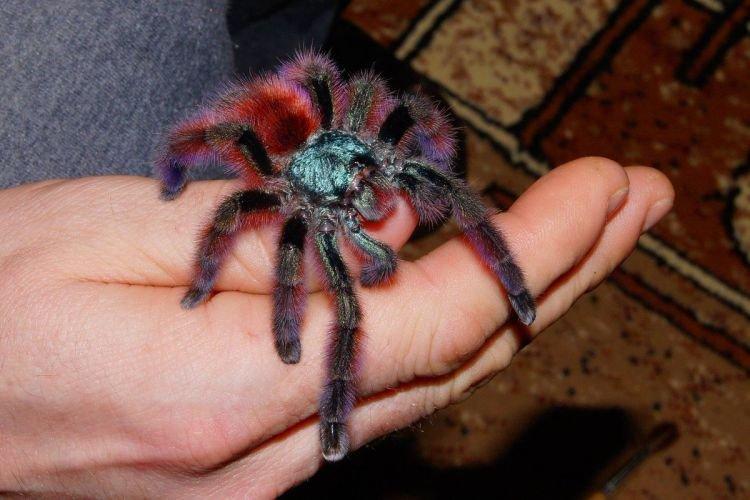
Perhaps one of the most beautiful members of our top thanks to the unusual blue-violet shade of the calf. For humans, these tarantulas are not dangerous, and they are often kept in terrariums. In nature, they are found in Colombia, Malaysia, Singapore.
2. Giant baboon spider
Body size: up to 10 cm.
Paw span: up to 25 cm.
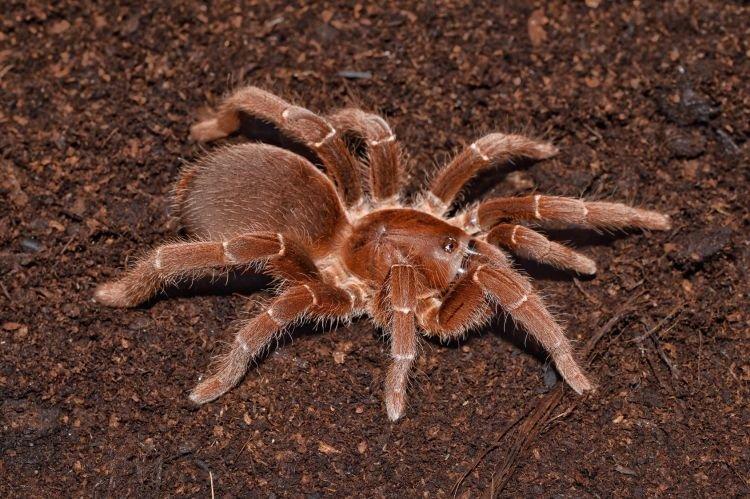
The venomous South American spider gets its name because its limbs resemble those of a monkey. Although toxic, it almost never attacks first, but only defends itself. First of all, he instills fear in the enemy - he gets up on his paws and hisses.
1. Terafosa Blond
Body size: up to 10 cm.
Paw span: up to 25 cm.
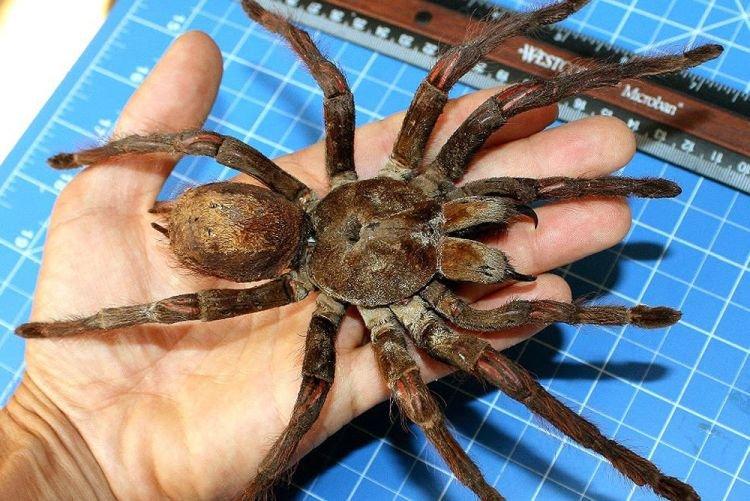
Therafosa Blonda is a tarantula, and its largest known specimen has a paw span of 28 cm. It is about the size of a large dinner platter. Spiders live in parts of Brazil, Venezuela and Suriname, and feed on small rodents, toads and snakes.



